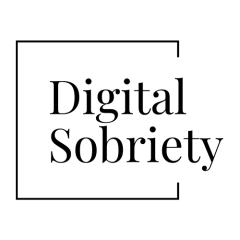These books were formative for me, and I hope you find them valuable too.
Books about addictive tech design
Hooked by Nir Eyal
Hooked: How To Build Habit-Forming Products is a book that I have a love-hate relationship with. On one hand, I find the idea of a step-by-step guide for creating ‘habit-forming’ (read: addictive) products problematic, but on the other, I cannot deny the sheer value that this book provides. It goes very in-depth on the topic of what makes us keep coming back to our devices and apps.
I would recommend it as a reading for everyone. Once you’re aware of the cookie-cutter process that makes all these apps stick in your mind even after closing them, it’s much harder to unwittingly fall prey to them.
Digital Minimalism by Cal Newport
Digital Minimalism covers advice on how to reduce mental clutter caused by social media, phone addiction and other forms of digital distractions.
Among other things, Cal Newport argues that social media was purposely designed to be unsatisfying in order to provide a cheap alternative to real, in-person conversations. This way it leaves you wanting for more.
Whether there’s a notification or not, it doesn’t really feel that good… Whatever we’re hoping to see, it never quite meets that bar.
Leah Pearlman, product manager on the team that developed Facebook’s Like button
Books on calming your distracted mind
Make Time by Jake Knapp and John Zeratsky
While there is nothing groundbreaking in this book, the authors of this book managed to achieve one amazing thing – they presented a framework for making time that seems achievable for an average Andy. There are no “shut yourself away for 30 days” type of tips here, and the tone seems genuinely down-to-earth.
The Make Time framework is based on setting and completing one “Highlight” (a meaningful 60-90 minute task) every day. How do you pick one? Your Highlight can be decided on based on urgency, satisfaction or personal joy. They go into much more detail on how to actually execute and stick with this in the book.
This is a great recommendation for those that are great at planning but get stuck on the execution stage.
Deep Work by Cal Newport
In his book Deep Work, Cal Newport discusses various ways we waste our mental energy and time, while only leaving a small portion of our busy days to do “real” work, which he refers to as ‘deep work’:
Deep Work: Professional activities performed in a state of distraction free concentration that push your cognitive capabilities to their limit. These efforts create new value, improve your skill, an are hard to replicate.
He offers a lot of advice on how to achieve this state, from eliminating distractions and improving our concentration and mental memory, to how to effectively schedule work hours and say no to ‘shallow work’.
While this book shows some levels of privilege (and Cal’s lack of experience in the corporate world, at least outside of academia), this book was formative to me in terms of the perspective on life. It invited self-reflection in the way I choose to spend time on, especially during a very vulnerable time of my life.
Goodbye, Things by Fumio Sasaki
This is a book about Fumio Sasaki’s personal journey to minimalism. Although he does take it to an extreme most of us would not be comfortable with, what I’ve found most valuable about this book are the psychological benefits of reducing our material possessions.
The concept of the ‘silent to-do list’ was enlightening, especially for someone with ADHD like me. Sasaki claims that our possessions “don’t just sit there”, but they instead send “silent messages” to us (metaphorically).
For example, maybe you picked up a foreign language textbook which now collects dust on your shelf. Except, every time you look at it, you’re reminded that you’ve left the language-learning process halfway, and its silent message uses up your mental energy on beating yourself up. These messages tend to add up with every material possession we own.
